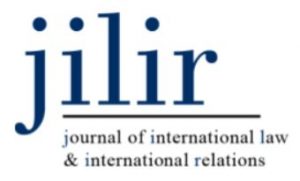Food security has re-emerged as a major global problem over the past decade, during which it has become clear that the capacity to access adequate food is strikingly unevenly distributed, both within states and between states. Yet there is little agreement amongst scholars and policy-makers as to the reasons for the persistence of that uneven distribution of hunger and undernourishment in the world today. This article is part of a broader project exploring the role played by law over the past two centuries in constituting an international economic order that enables individuals and corporations to profit from human dependence upon food while growing numbers of people globally are undernourished. The aim of the project is to understand why food security remains so unevenly distributed in the twenty-first century, and whether those patterns of vulnerability have anything to do with international law and the legacies of imperialism.
The immediate impetus for the project was the disruption to the global food economy that began with the food price crisis of 2006. In that year, food shortages and a dramatic rise in food prices led to a significant increase in the number of people globally who were undernourished, either because they could not produce enough food for themselves and their families or because they could not purchase enough food for an adequate diet.1 Between 2006 and 2008, food shortages and the rise in food prices caused political instability and were met by food riots in at least thirty countries, including Bangladesh, Egypt, Haiti, India, Indonesia, Mexico, Morocco, Senegal, and Somalia.2 By 2009, the Food and Agriculture Organization of the United Nations (FAO) estimated that “more than a billion people, one in every six human beings may be suffering from under-nourishment.”3 In 2010, food prices again rose worldwide as a result of a series of crop failures caused by bad weather, aggravated when Russia implemented an export ban on wheat. Thirteen people were killed during protests in Mozambique triggered by the subsequent rise in the cost of bread.4 In December 2010 and again in February 2011, the FAO Food Price Index hit its highest levels since the measure was first calculated in 1990, surpassing those seen during the 2006-8 crisis. In response to such developments, the United Nations Conference on Trade and Development (UNCTAD) called on governments to “wake up before it is too late.”5 UNCTAD’s 2013 Trade and Environment report noted the continued concerns for food security caused by high and volatile food prices internationally, triggered in large part by climate change, food price speculation, and the direct link between fuel and food prices created by the growth of the biofuel industry. According to the report’s authors, the crisis facing agriculture “may well turn out to be one of the biggest challenges, including for international security, of the 21st century.”6
In order to grasp the past and present role of international law in contributing to the creation of the global food economy, the broader project on which this article draws is structured around five concepts that have been integral to debates over the constitution of transnational food regimes since the late eighteenth century—free trade, investment, population control, intervention, and rights. Each of these concepts has been articulated, enshrined and debated in legal texts over the past two hundred years, and all are intimately related. While debates about free trade and investment often have an abstract and rationally persuasive quality to them, the schemes they propose are dependent upon controlling people and territory. The question of what to do with “surplus,” “redundant,” or internally displaced populations is a question that has haunted attempts to constitute a market-oriented agricultural order since the nineteenth century, as has the question of how to secure foreign investments and ensure the free movement of goods and people necessary to enable profits to be made. Acquisition of territory and dispossession of peoples are both defended and debated in the language of rights. In the broader project I explore the movement and transformation of these interrelated concepts, as they travel from intellectual treatises, campaigning speeches, political rhetoric, official reports, treaties, commission reports, and legislative reforms in the nineteenth century, to collaborative projects developed by international lawyers, economists, sociologists, and historians turning their minds to how the colonial system might peacefully change during the inter-war period, and on to their institutionalisation post-1945 in separate international regimes dealing with free trade and investment, population control, intervention, and human rights.
This article focuses on the first of those principles, that of free trade. It argues that attending to the legal framework that underpins the project of global economic integration can help in the process of understanding and responding to the uneven distribution of food insecurity, but that this will require a deep engagement with the history and politics of the free trade project. Parts I and II of this article set out the broad contours of the project, and introduce the methodological approach I develop to grasp how international law has contributed to constituting a global political economy of food over the past two hundred years, and how attention to history can help us understand that process more clearly. The goal is to suggest what a study of international law and institutions can tell us about the material question of access to food, and how such a study might be conducted.
 On 23 May 2013, President Obama formally acknowledged that the United States (US) had been taking “lethal, targeted action against al-Qaeda and its associated forces, including with remotely piloted aircraft commonly referred to as drones,” and that it intended to continue doing so because these actions were “effective” and “legal.”1 When these words were pronounced, it was no secret that the US and other countries were embarked in the research, development and use of these unmanned systems.2 As a mater of fact, it was not the frst time that high ranking officials of the US had acknowledged this, though little more was officially disclosed.3 After Obama’s words, opacity remains the policy concerning the frequency and scope of the use of drones by either the US or any other power that possesses them.4 Not only has the general public lacked enough information: “Even the other two branches of federal government … have reportedly not been fully informed of the details of the program.”5 Likewise, there seems to be a clear leap between what official spokespeople and apologetic scholars say on the one hand and what actually happens on the ground on the other.6
On 23 May 2013, President Obama formally acknowledged that the United States (US) had been taking “lethal, targeted action against al-Qaeda and its associated forces, including with remotely piloted aircraft commonly referred to as drones,” and that it intended to continue doing so because these actions were “effective” and “legal.”1 When these words were pronounced, it was no secret that the US and other countries were embarked in the research, development and use of these unmanned systems.2 As a mater of fact, it was not the frst time that high ranking officials of the US had acknowledged this, though little more was officially disclosed.3 After Obama’s words, opacity remains the policy concerning the frequency and scope of the use of drones by either the US or any other power that possesses them.4 Not only has the general public lacked enough information: “Even the other two branches of federal government … have reportedly not been fully informed of the details of the program.”5 Likewise, there seems to be a clear leap between what official spokespeople and apologetic scholars say on the one hand and what actually happens on the ground on the other.6 The Journal of International Law & International Relations (JILIR) is a peer-reviewed scholarly journal that fosters interdisciplinary discourse at the nexus of international law and international relations. In promoting critical, informed, and interdisciplinary debate on international affairs, the JILIR provides a forum for the advancement of knowledge, ideas, dialectic and dialogue in both International Law and International Relations.
The Journal of International Law & International Relations (JILIR) is a peer-reviewed scholarly journal that fosters interdisciplinary discourse at the nexus of international law and international relations. In promoting critical, informed, and interdisciplinary debate on international affairs, the JILIR provides a forum for the advancement of knowledge, ideas, dialectic and dialogue in both International Law and International Relations.


